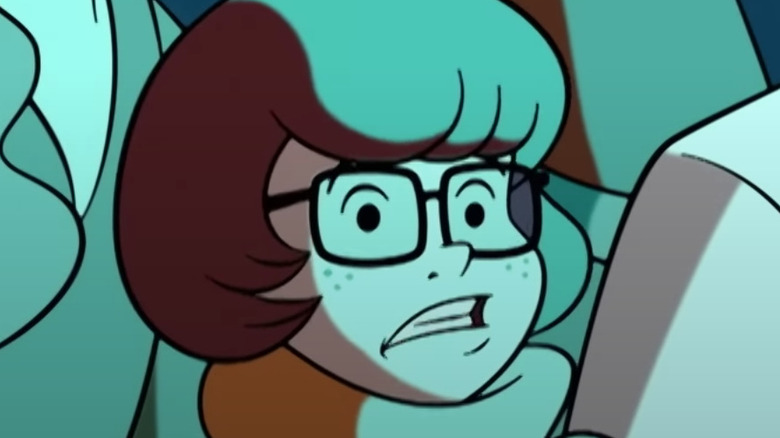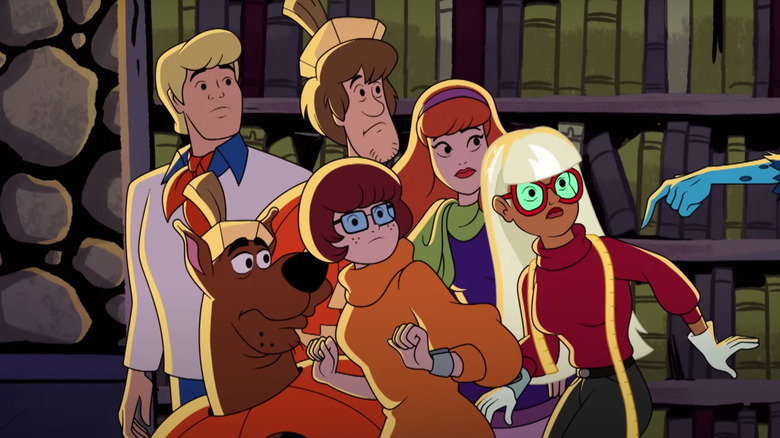Google Celebrates Velma Following The Release Of Trick Or Treat Scooby-Doo!
If it ain't broke, don't fix it. Such has been the guiding principle for Scooby-Doo and the gang since they debuted in 1969. While their Hanna-Barbera contemporaries like "Jonny Quest" and "The Jetsons" have gone the way of the dinosaurs, "Scooby-Doo" — originally titled "Scooby-Doo, Where Are You!" — has remained relatively unchanged and impressively prolific. Indeed, the franchise has persisted over the decades with live-action films and thirteen separate series, as have Shaggy's bell bottoms and Fred's ascot.
For the latest "Scooby-Doo" movie, the Mystery, Inc. team is undergoing one significant, long-speculated change. "Trick or Treat Scooby-Doo!" gives Velma Dinkley (Kate Micucci) an unabashedly gay storyline when she's seen hopelessly crushing on female felon Coco Diablo (Myrna Velasco). "Who am I kidding? I'm crushing big time, Daphne! What do I do? What do I say?" a flustered Velma asks her friend. Jinkies indeed. Fans can't stop shipping Velma and her new crush, Coco, and even brands like Google are celebrating the character's coming out as a lesbian.
Google designed a special animation to celebrate Velma's coming out
Upon the release of "Trick or Treat Scooby-Doo!" on October 4, Google responded to Velma's groundbreaking coming out with a special animation. When Google users search the term "Velma," "Velma Scooby-Doo," or something to that effect, a burst of confetti, LGBTQ+, and lesbian flags flutter across the screen (via Independent).
For fans and even "Scooby-Doo" scribes, the confirmation of Velma's queer identity was a long time coming. When James Gunn signed on to pen the 2002 live-action "Scooby-Doo" screenplay, he envisioned Velma as a gay character. "I tried!" Gunn tweeted. "In 2001, Velma was explicitly gay in my initial script. But the studio just kept watering it down and watering it down, becoming ambiguous (the version shot), then nothing (the released version), and finally having a boyfriend (the sequel)" (via NBC).
"Trick or Treat Scooby-Doo!" director Audie Harrison hopes that Velma's coming out does a small part in representation. "I actually thought it was a bigger deal for Velma's character that she is in love with the villain of the movie," Harrison told NPR. "The fact that she is a girl is just ... well, a fact. That being said, it does feel great to be a part of normalizing representation, especially with such a well-known franchise like Scooby-Doo!" Google's animation proves that even a small gesture towards inclusion could and should be celebrated.

